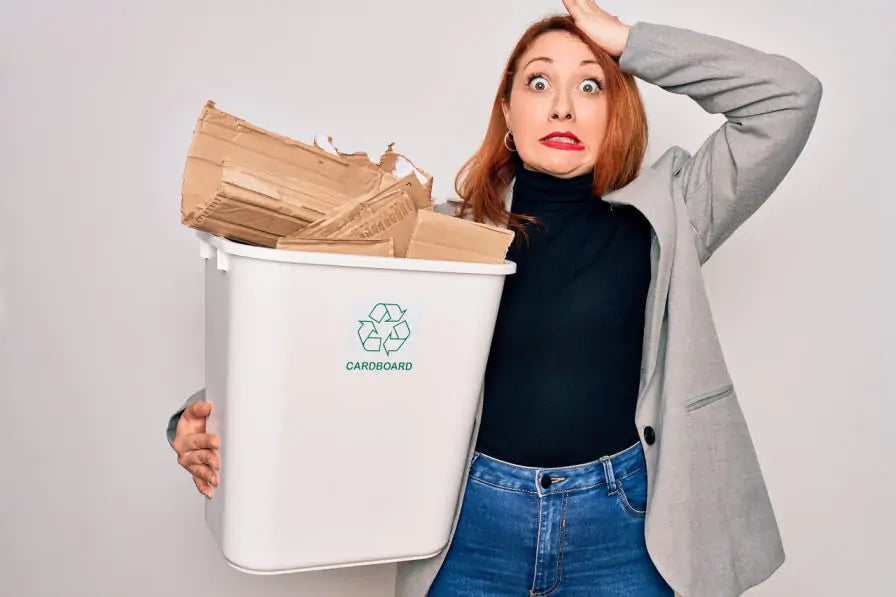Your basket is currently empty.
Shop Now5 Common Recycling Mistakes

5 Common Recycling Mistakes
Every good recycler does his or her part in helping reduce the amount of non-biodegradable plastics filling up landfills and reducing the number of trees cut down each year to produce our much-demanded paper products. However, best intentions aren’t always effective. Many people can fail to realise how to best, and even what, to recycle. Below, the article presents five common recycling mistakes and their remedies.
1. Not flattening all materials.
Flattening all waste, from milk cartons to large cardboard boxes, is essential for an effective recycling programme. Items that are not flattened take up more space. Not only does this mean fewer items can be recycled, but also more money is spent on community recycling bins, lorries, and time spent picking up and dropping off recycling to area plants.

2. Putting dirty paper in cardboard containers.
Cardboard and paper are waste items with the highest effective recycling yield. In order to properly re-use them, it’s best that they are not dirty or contaminated, especially by food waste. Separate your contaminated paper from clean paper and cardboard. Office papers, package material, and boxes are such good examples. By throwing away used napkins and tissues in with these items, you could ruin the papers they come into contact with.
3. Using or sealing bags when recycling rubbish.
Too often, good Samaritans who recycle diligently end up carrying their rubbish in plastic bags. If you’re throwing away paper or cardboard in the recycling, plastic bags are a waste of plastic and time. While recycling plants have machinery that can pierce and empty plastic bags, a much more effective system would allow this time to be spent recycling the materials.
4. Don’t be afraid to start recycling all plastics containing food.
While many feel comfortable recycling plastic bags after shopping, many end up throwing mixed plastic food containers such as butter and yoghurt tubs, or bottles – even though such packaging should be recycled. Moreover, mixed plastics household items are recyclable. So: throw away your laundry detergents when finished. The only containers that should not be thrown away are ones containing toxic or dangerous chemicals, such as bleach or drain unblocking liquid containers.
5. Know your colours.
Recycling is good for your home or office as well as the environment and low service costs. In order to help your local council keep recycling service costs to a minimum, effective and accurate recycling makes the process smoother and lets workers handle larger amounts faster. More effective recycling plants means less cost to the public. One way to help is to make sure your recycling goes in the right bin. Blue boxes and bins are generally used for cardboard or paper. Green or red boxes and bins are generally used for recycling, glass, jars, food containers and plastics. Check with your local council however to make sure you’re recycling correctly.
